User Identification And Recruitment
Our target users are NUS students who are expected to plan their modules and track their degree progress to ensure graduation, i.e. students without fixed degree curriculums. We conducted the study through convenience sampling by approaching our friends and classmates across various faculties and levels.
In light of the ongoing pandemic, the entire study was conducted remotely over Zoom and Google Forms. A total of 9 students participated in the remote observation and interview, while 52 others completed our survey.
First Stage: Exploratory
Our user study was completed in two stages. Firstly, our user study began with the exploratory phase. We conducted remote observations and interviews to gain a sense of the various methods and pain points our target group may face while planning the progression of their degrees.
To obtain information about current planning strategies employed, planning mediums used and pain points our target group may have as a result of resources made available by their faculties and duration in NUS’s system, students from various faculties and different levels of study were selected for this phase.
The remote observation was task-specific and required users to let us observe how they usually plan their semesters while they think aloud to rationalize their actions. This gave us crucial insights into what mediums were used for the planning process and what materials were consulted before making decisions.
Through these remote observations, we also noted several causes to our users’ frustrations and what they liked about the specific tools used in their planning process.
At the end of the session, we asked post-observation questions so users could reflect on their experience with module planning and what they wish to see in a better platform for planning.
You can access the various questions and tasks we have asked users here.
Second Stage: Survey
With the crucial insights obtained through our exploratory phase, we began the second stage of our user study. We crafted a survey form based on the observation data collected and distributed it to obtain feedback on the module planning experience from a wider group of users. The second phase aimed to verify and obtain a consensus on the various considerations taken when planning and the various pain points experienced during this process.
To potentially expand on what we already knew, we also allowed users to add on their own experiences and planning goals if they wished. Through this phase, we were able to paint a clearer picture of what our target group wants and which pain points to address first.
The results from the survey are included below. Click on any image to start viewing the gallery
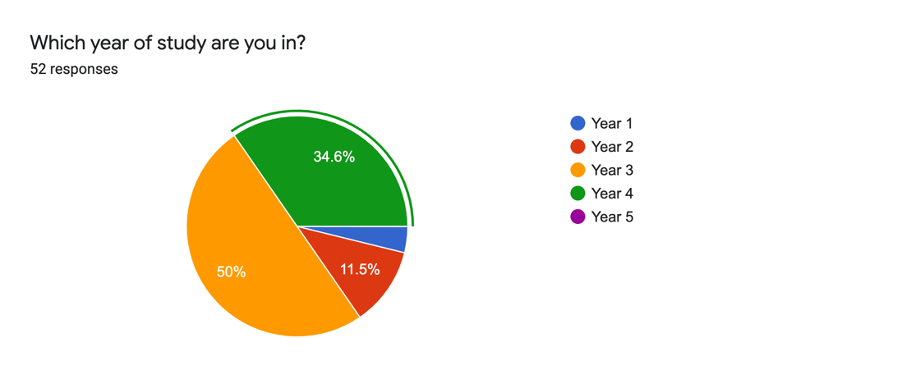
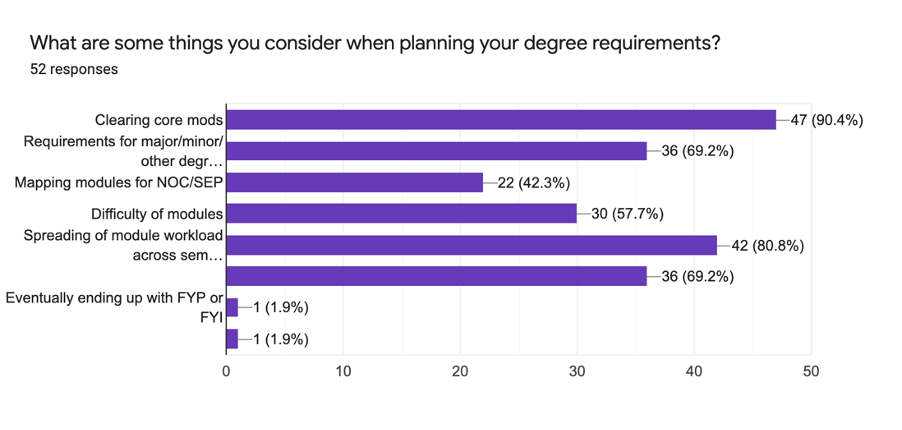
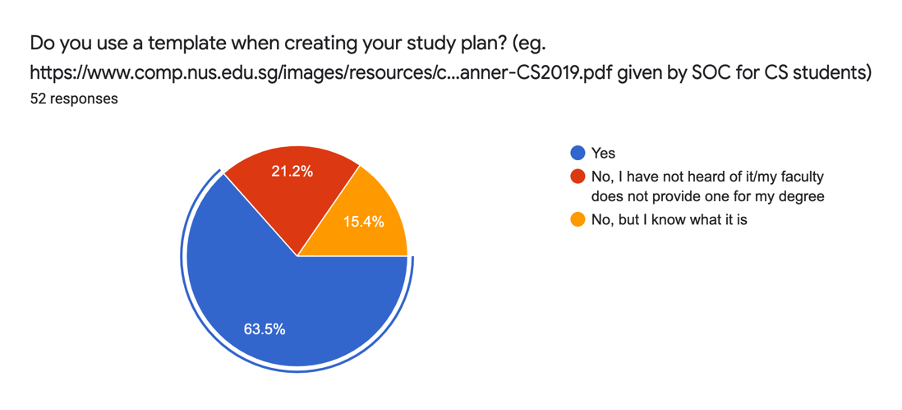
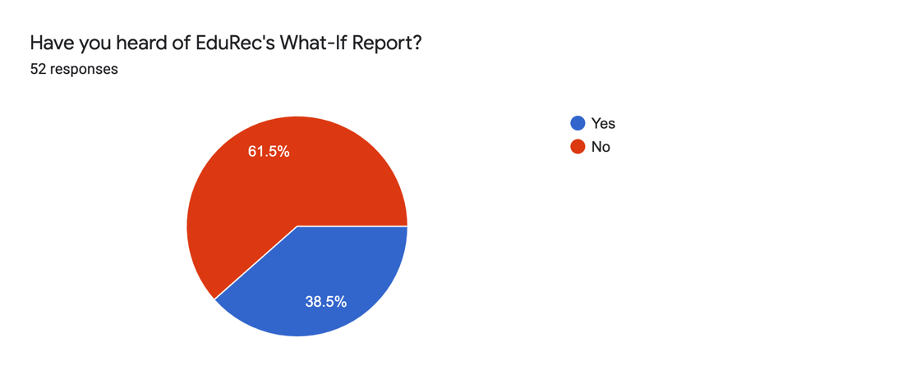
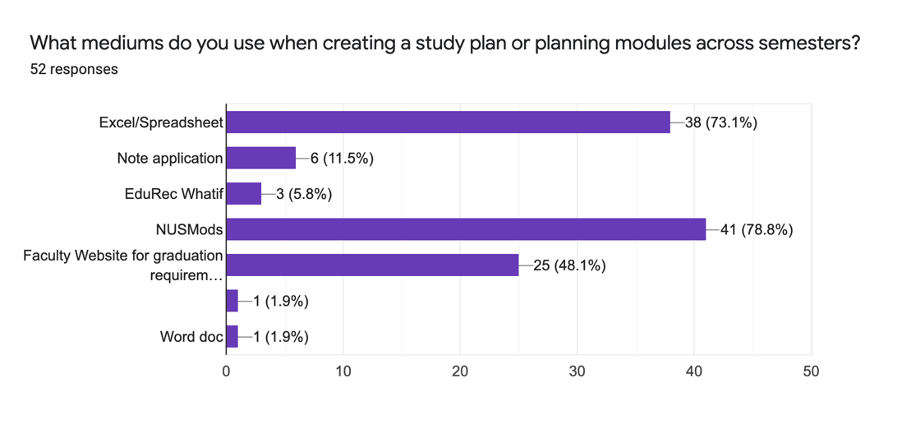
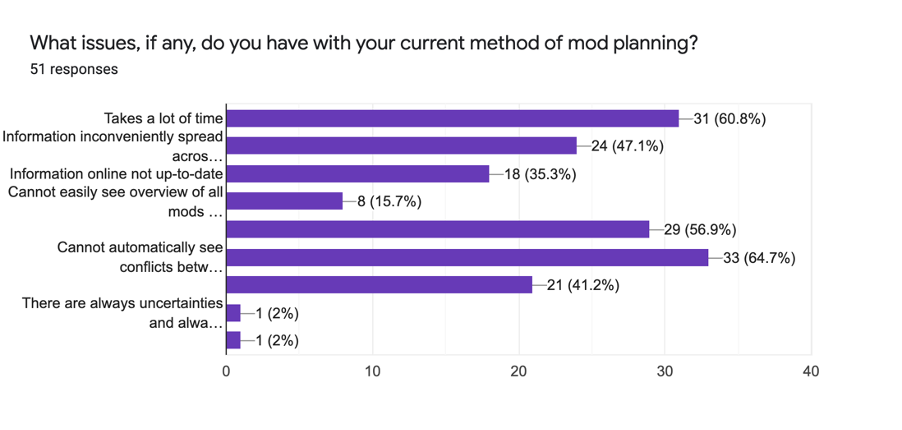
Personas
Following the findings from both the remote observations/interviews and the survey, we have come up with a few personas to summarise the different user characteristics, backgrounds, motivations, and frustrations we have observed.
Click on the tabs below to browse through the profiles of Yilin, Atiqah and Amit.
Scenarios
The following are some task-oriented decompositions of how our target users may currently plan their semesters as well as how degree.ly may seek to smoothen the task process for our target users. They allow for further discussion on the contexts, needs, settings, actors, and actions that need to be accounted for in our future solution.
Based on someone who doesn’t use degree.ly.
Yilin stumbles upon an internship opening at Unilever, a prestigious firm for Life Science undergraduates. Excellent performance during the internship would mean conversion to a full-time role.
She gets down to work and starts planning how she can meet her graduation requirements while leaving a whole semester for the internship and still graduating on time. Using her degree plan on Microsoft Word, she scrolls back and forth to check if she has met her degree requirements while switching windows to view the requirements on her browser.
While pondering whether to take a module for the next semester, she makes a quick Google search on the module to get some reviews. Aside from the comments section on NUSMods for module reviews, she is also able to find numerous others on blogs written by seniors.
At the end of it all, she is swamped with information and nowhere closer to knowing if she can take on that Unilever internship after all. With a sigh, she starts applying for it anyway. Things will sort themselves out eventually, she thinks to herself.
Based on someone who uses degree.ly.
Amit decides on Software Engineering as his focus area and starts planning the modules he needs to take.
He uses degree.ly to choose a Software Engineering focus area template. It is a pretty common focus area, so it’s no surprise that alongside the faculty-provided one there are also templates prepared by seniors. With this, he doesn’t have to visit another site to view the requirements and pick them out one by one.
By keying in an expected grade for each module, Amit is also able to estimate the best combination of modules he needs to take to secure his ideal CAP.
Module planning isn’t that bad after all. He leans back in his chair and takes a sip of his coffee, moving on to his next task.
